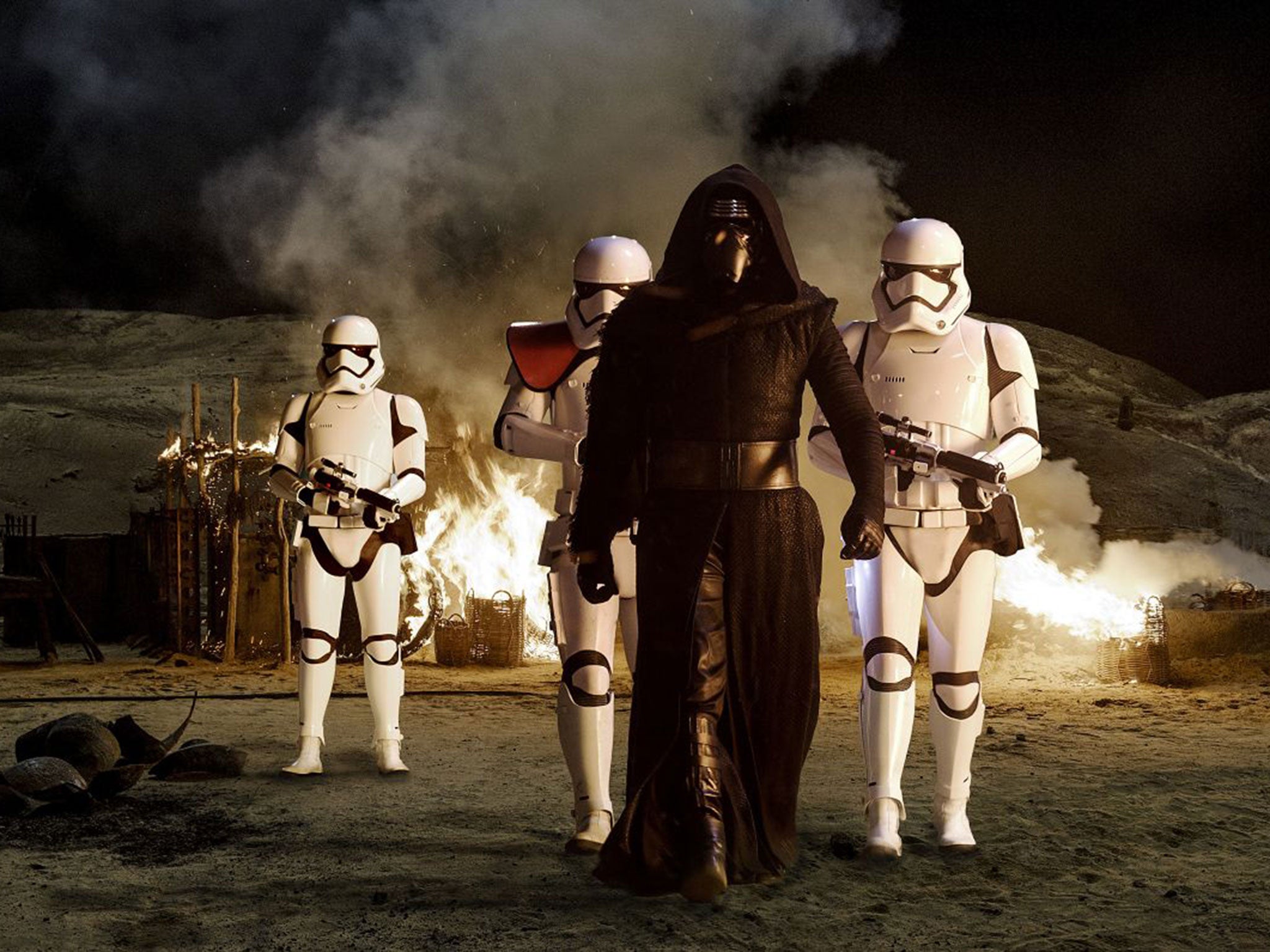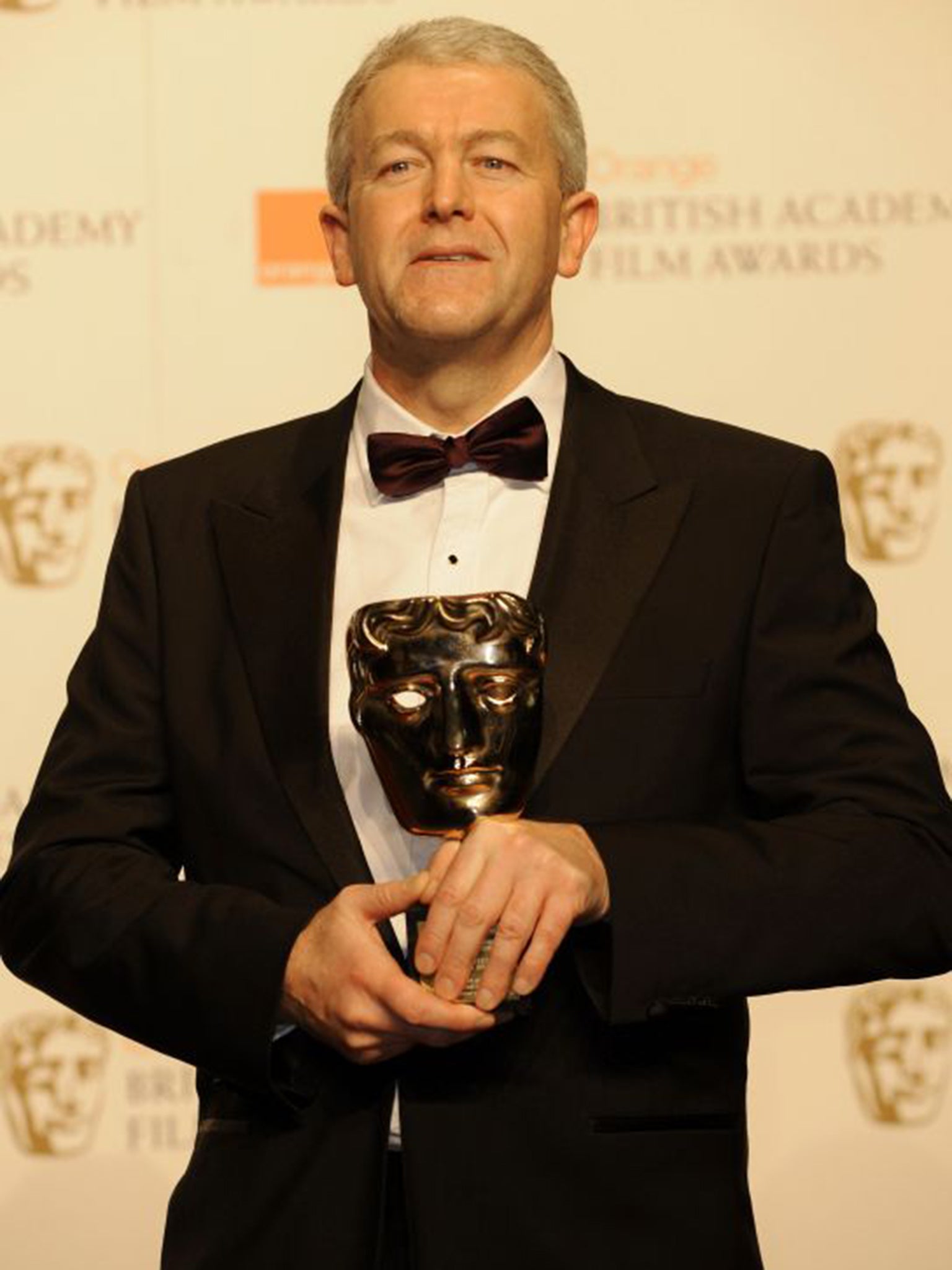Pinewood Studios head Ivan Dunleavy on the 'extraordinary opportunity for international dramas'
But students should drop media studies and learn practical film skills, the studio head tells Ian Burrell, before the lucrative work goes overseas

Your support helps us to tell the story
From reproductive rights to climate change to Big Tech, The Independent is on the ground when the story is developing. Whether it's investigating the financials of Elon Musk's pro-Trump PAC or producing our latest documentary, 'The A Word', which shines a light on the American women fighting for reproductive rights, we know how important it is to parse out the facts from the messaging.
At such a critical moment in US history, we need reporters on the ground. Your donation allows us to keep sending journalists to speak to both sides of the story.
The Independent is trusted by Americans across the entire political spectrum. And unlike many other quality news outlets, we choose not to lock Americans out of our reporting and analysis with paywalls. We believe quality journalism should be available to everyone, paid for by those who can afford it.
Your support makes all the difference.The panorama from the gatehouse roof at Pinewood Studios encompasses a 200-acre expanse of furious construction activity and buildings that range from the Albert R Broccoli 007 Stage, where Star Wars: Episode VIII is being made, to the old dressing rooms in which Marilyn Monroe made up for The Prince and the Showgirl back in 1957.
Ivan Dunleavy is overseeing a period of extraordinary growth in UK film, and his ambitions stretch far beyond the 81-year-old Pinewood site, north-west of London, where five new soundproof stages are being erected in a £200m extension. He also wants to increase capacity at Pinewood Group’s facilities at Shepperton, Surrey, and to expand its international network of studios beyond the current portfolio of Toronto, Atlanta, Malaysia and the Dominican Republic.
Films made at Pinewood’s various studios last year, including Star Wars: The Force Awakens, Cinderella, Spotlight, Ant-Man and Room, or using its post–production facilities (Brooklyn, Ex Machina, Steve Jobs), are nominated for 25 awards at the upcoming Bafta awards.
In an interview with The Independent on Sunday, Dunleavy identified China as “the prime example” in his list of “interesting new markets” for the UK film sector. To realise opportunities arising from the new Chinese-UK co-production treaty, he needs the help of British writers and producers in creating stories that will appeal to audiences in both countries.
“If we can create co-production films to play to Chinese audiences, it gives British film producers a market that they didn’t [previously] readily access but the story has to be sensitive to both audiences,” he said. “There’s no point in any tokenism,”

Writers looking for moments of common history, such as the Boxer Rebellion or the Opium Wars, should bear in mind the tastes of Chinese cinema audiences, he said. “Period is an obvious common ground but we shouldn’t just think of it in those terms.
“We have got to be sensitive to the core of good film-making which is telling a good story.”
Monster Hunt, which recently broke the Chinese box office record with gross earnings of $390m (£268m), is a 3D fantasy mixing live action with CGI and combining human and animated characters. The film had a $40m budget.
“Chinese audiences are looking for differing stories and improving quality of production,” said Dunleavy. “If we can deploy our expertise and experience in those markets that’s good business for us.”
He said Pinewood, which hosts a melange of 250 media production and support companies on its sprawling site, was in a “unique position” . “If we can use what we do to be a sort of bridgehead between ourselves and the UK film industry to work more closely with their Chinese counterparts that would just be fantastic.”

Watch Apple TV+ free for 7 days
New subscribers only. £8.99/mo. after free trial. Plan auto-renews until cancelled

Watch Apple TV+ free for 7 days
New subscribers only. £8.99/mo. after free trial. Plan auto-renews until cancelled
The Dominican Republic studios, which has a unique Horizon Tank facility used for filming water-based scenes, are part of Pinewood’s ambition to expand in the Spanish-language film sector. The Pinewood boss said the group could open studios in South America. “There are challenges, but there’s a great film-making tradition in the region.”
Dunleavy, who is also on the board of Creative Skillset, the organisation set up to improve training for work in the creative industries, warned that the education system was contributing to a skills deficit which could hamstring the booming UK film and television sectors.
He said children must be taught that careers in the film industry are not restricted to acting and directing, and that the industry needs a broad skills base, from accountancy to coding and carpentry.
He called for schools to replace media studies courses with practical teaching aimed at changing the way children view careers in the creative industries.
“Media studies has been historically derided because you couldn’t see a practical purpose coming through from that kind of course,” he said. “As an industry we don’t need people who can give us 3,000 words on Russian film in the 20th century. We do need people who can use the STEM [science, technology, engineering, maths] subjects and have a creative aspect to work in video games and CGI and some of the high end [film and television] we do.”
Pinewood has made almost all of the 24 Bond films. The production of Skyfall required a 16-strong team to handle “transport logistics”, plus a 100-strong art department, 38 in costume, 75 in stunts and 421 in visual effects .
To meet a hunger for high quality drama series, the group last month launched Pinewood Television, a joint venture with the investors StoryFirst, in response to the emergence of new content platforms such as Netflix, Amazon and China’s Alibaba Pictures.
“All of those platforms are looking for quality content to distinguish them, so the old adage of content is king is absolutely true,” said Dunleavy. “High-end television in its production process is very akin to that of film. You are looking at lavish imagery on the screen and it will be really interesting to set that alongside what we are doing in the world of film.”
Join our commenting forum
Join thought-provoking conversations, follow other Independent readers and see their replies
Comments